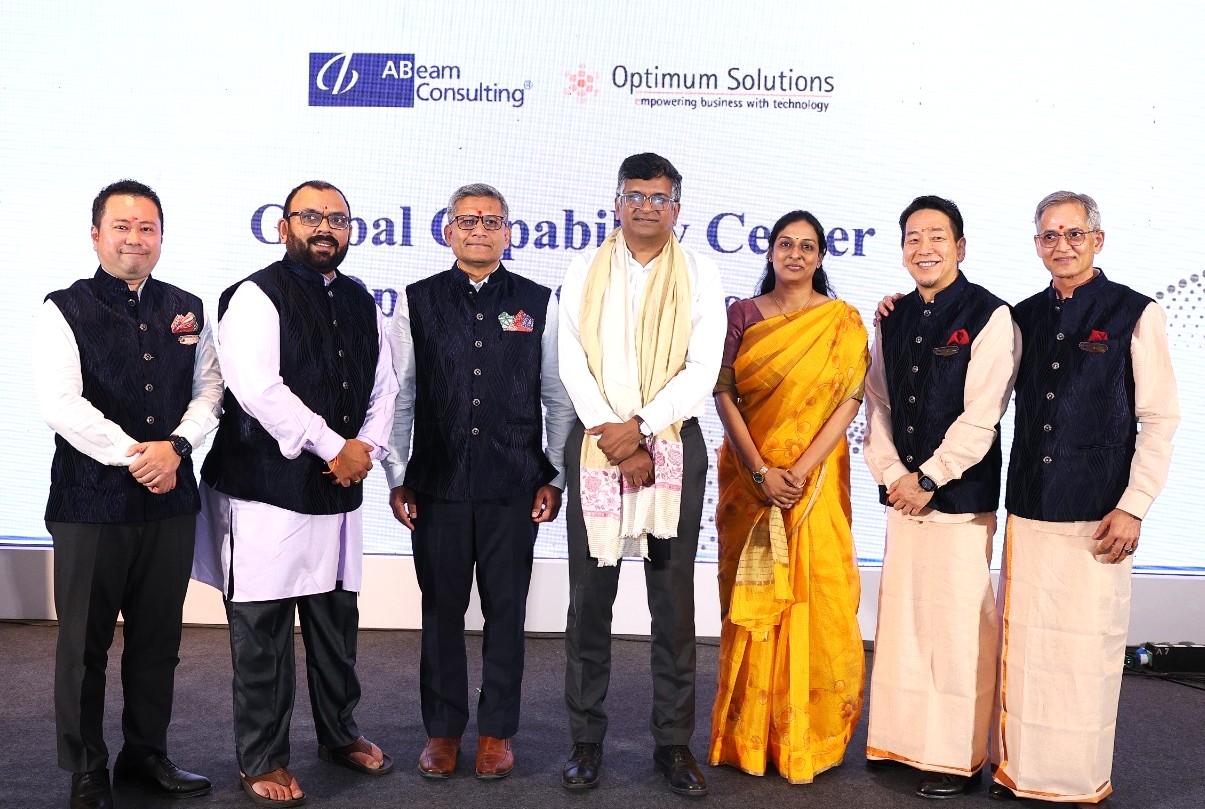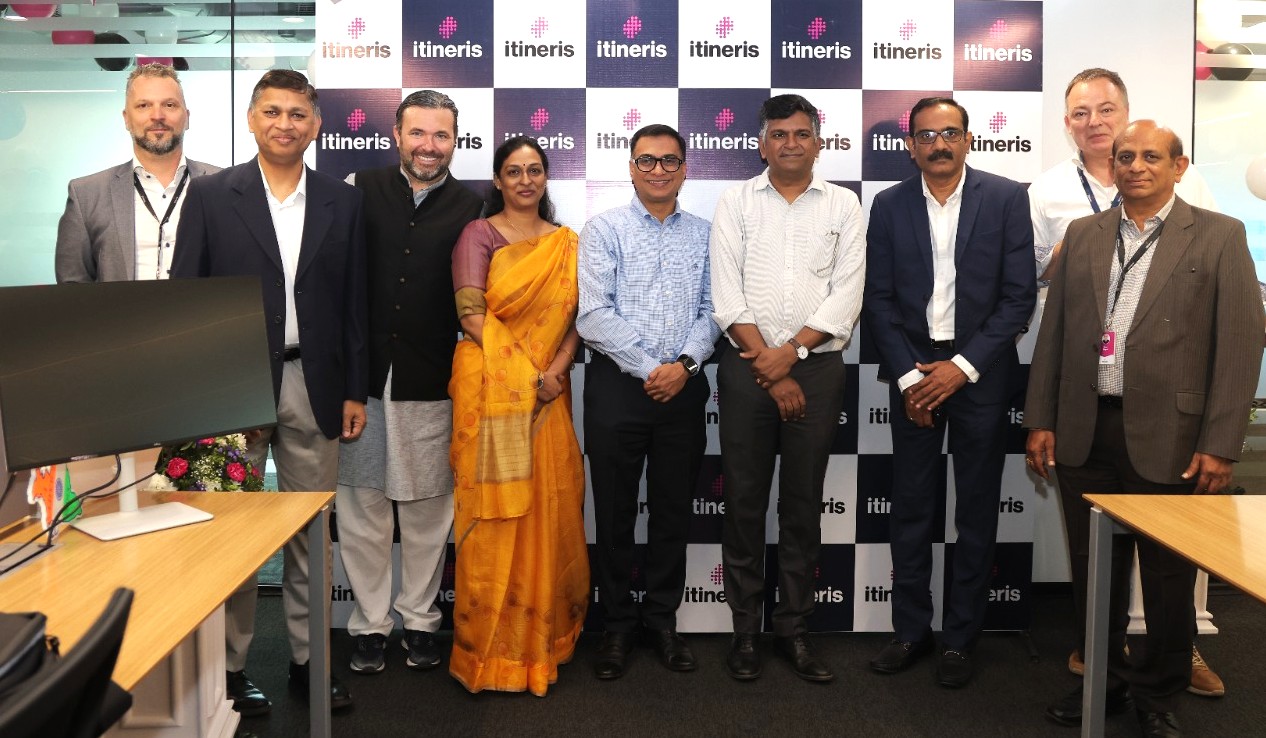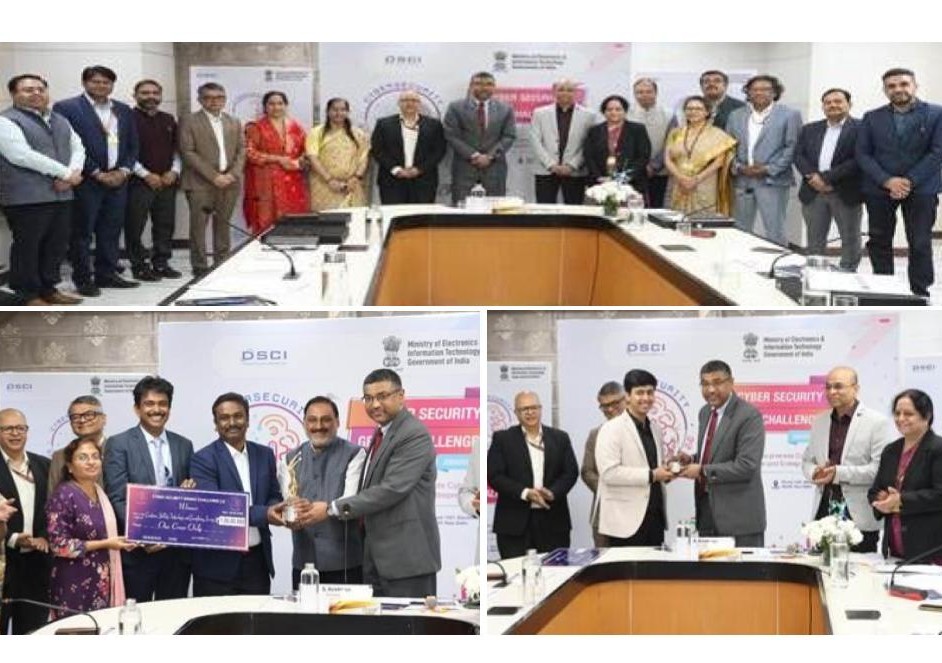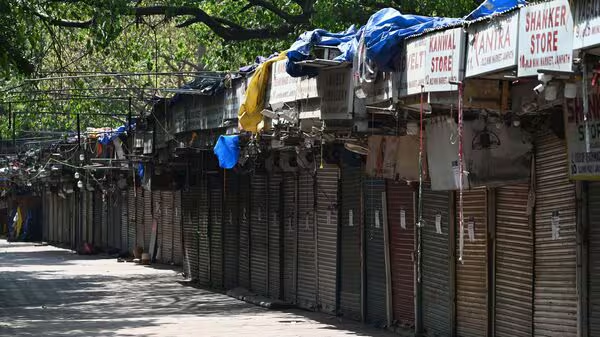President Droupadi Murmu Calls for Inclusive Development in Harmony with Nature at National Conclave on ‘Adi Karmayogi Abhiyan’
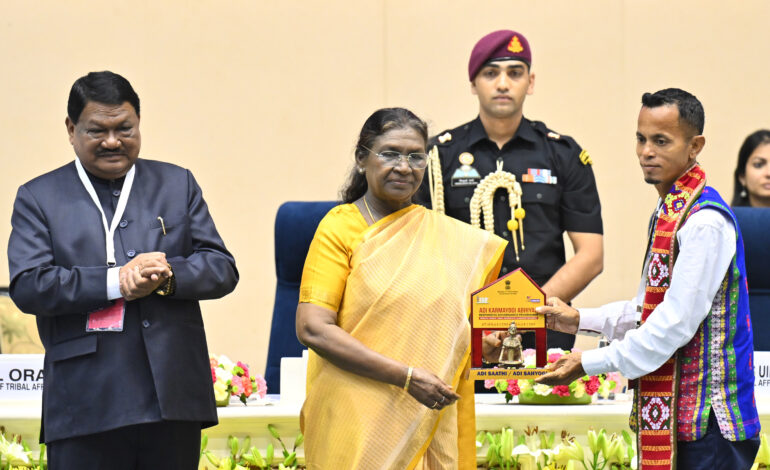
President Droupadi Murmu during the National Conclave on ‘Adi Karmayogi Abhiyan’ in New Delhi on Friday.
New Delhi, October 17: President Droupadi Murmu on Friday emphasized that the true progress of India lies in the development of all sections of society and in achieving growth that remains in harmony with nature. She was addressing the National Conclave on ‘Adi Karmayogi Abhiyan’ in New Delhi, where she also presented awards to the best-performing states, districts, blocks, and Integrated Tribal Development Agencies for their contributions to tribal welfare.
The President said that the conclave reflects India’s resolve to make governance participatory, inclusive, and people-driven. She noted that the Adi Karmayogi Abhiyan—a nationwide initiative to make every tribal village self-reliant and proud—was launched with the vision of ensuring that the benefits of development reach all tribal areas and communities.
Highlighting the importance of community-led growth, the President said the campaign empowers Gram Sabhas and community institutions, enabling tribal participation in policy formulation and making government schemes more effective.
She underlined the rich cultural and ecological wisdom of tribal communities, remarking that their traditions remind us that development must be in harmony with nature. She praised the government’s sustained efforts to improve education, healthcare, employment, and skill development among tribal populations, noting that these initiatives have boosted self-reliance and confidence within the community.
“In our journey towards a developed India, we must remember that real progress of the nation and society lies in the development of all sections,” President Murmu said. “We must build an inclusive society where all citizens participate meaningfully and shape their own destiny.”
The President lauded the government’s efforts to expand infrastructure, residential schools, and scholarship programmes in tribal areas, as well as promote traditional crafts and entrepreneurship through skill and self-employment schemes. She expressed confidence that the Tribal Action Framework would continue to play a vital role in empowering tribal communities and advancing India’s holistic development.


